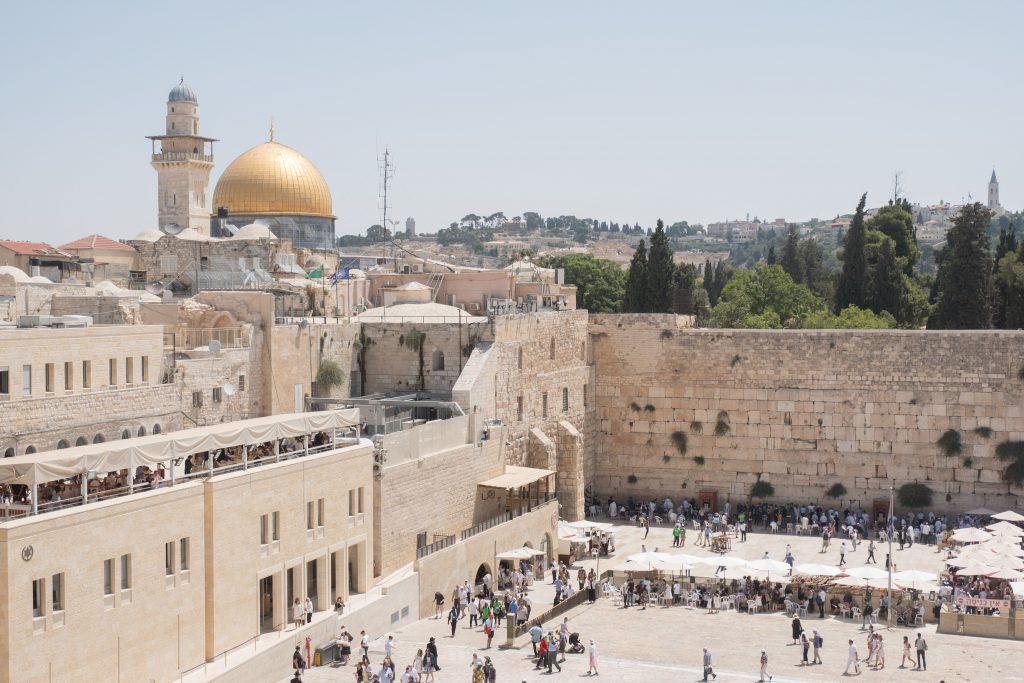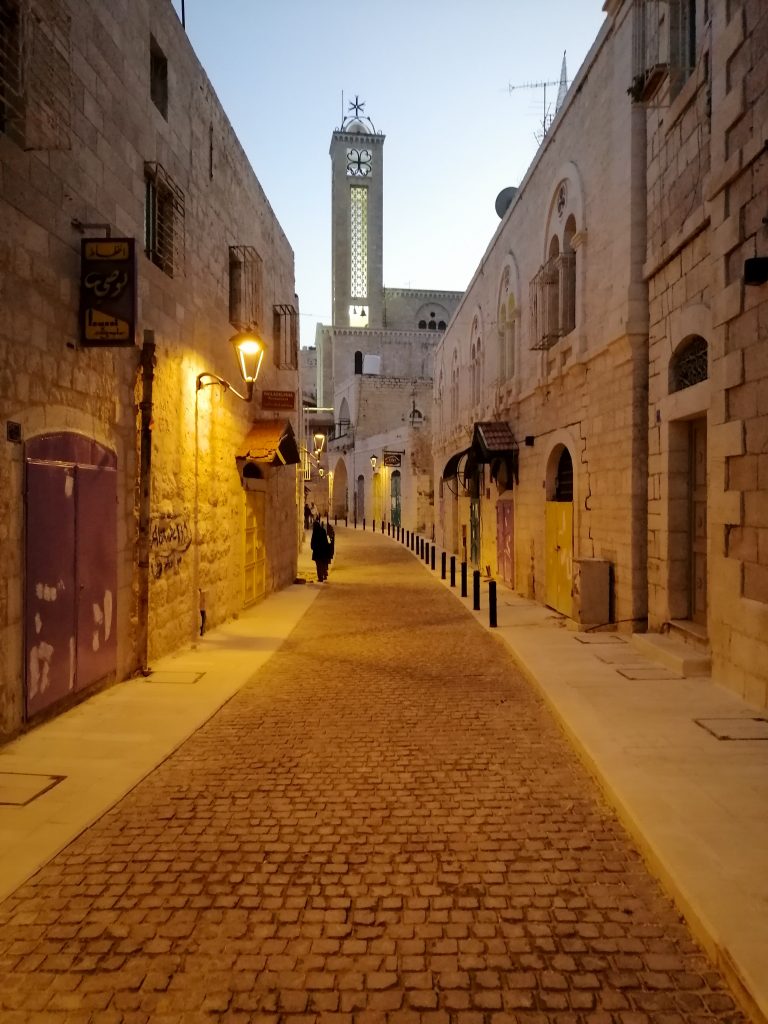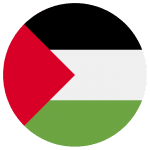At first, the British allowed Jewish immigration. But as more Jews arrived, settling into farming communes, tension between Jews and Arabs grew. And by the 1930s, the British began limiting Jewish immigration. In response, Jewish militias formed to fight both the local Arabs and to resist British rule. Then came the Holocaust, leading many more Jews to flee Europe for British Palestine, and galvanizing much of the world in support of a Jewish state.
In 1947, after more than two decades of British rule, the United Nations proposed a plan to partition Palestine into two sections: an independent Jewish state and an independent Arab state. The city of Jerusalem, which was claimed as a capital by both Jews and Palestinian Arabs, was to be an international territory with a special status.
The plan was meant to give Jews a state, to establish Palestinian independence, and to end the sectarian violence that the British could no longer control. The Jews accepted the plan and declared independence as Israel. But Arabs throughout the region saw the UN plan as just more European colonialism trying to steal their land. Many of the Arab states, who had just recently won independence themselves, declared war on Israel in an effort to establish a unified Arab Palestine where all of British Palestine had been.
The new state of Israel won the war. But in the process, they pushed well past their borders under the UN plan, taking the western half of Jerusalem and much of the land that was to have been part of Palestine. They also expelled huge numbers of Palestinians from their homes, creating a massive refugee population whose descendants today number about 7 million. At the end of the war, Israel controlled all of the territory except for Gaza, which Egypt controlled, and the West Bank, named because it’s west of the Jordan River, which Jordan controlled. In May 1948, Britain withdrew from Palestine and Israel declared itself an independent state, implying a willingness to implement the Partition Plan.
The Palestine Liberation Organization (PLO) was founded in 1964 with the goal of establishing a Palestinian Arab state on land that had previously been controlled under the British Mandate and that the PLO believed was being occupied illegitimately by Israel. Although the PLO was founded with the objective of destroying Israel in order to achieve Palestinian independence, in the 1993 Oslo Accords, the PLO recognised Israel’s right to exist in exchange for Israel’s formal recognition of the PLO. Yasser Arafat, a well-known Palestinian politician, was elected Chairman of the PLO in 1969 and held the position until his death in 2004.
During a tumultuous time of diplomatic tensions and conflicts between Israel and its neighbours, the Six-Day War erupted. In 1967, Israel and the neighboring Arab states fought another war. Israel had taken the Golan Heights from Syria, the West Bank from Jordan, and Gaza and the Sinai Peninsula from Egypt by the time it concluded. The Palestinian lands, including Jerusalem and its holy sites, were now under Israeli control. As a result, Israel is now in charge of the Palestinians.
In 1978, Israel and Egypt signed the Camp David Accords, which were negotiated by the United States, and Israel promptly returned Sanai to Egypt as part of a peace pact. President Anwar Sadat of Egypt was assassinated in part as a result of public outcry. The other Arab states progressively made peace with Israel over the next two decades, even if they never signed formal peace treaties. However, Israel’s forces continued to occupy Palestinian lands in the West Bank and Gaza, and the conflict shifted to an Israeli-Palestinian conflict.
The Palestinian Liberation Organization (PLO) battled Israel, especially by using terrorism. Israel and the PLO fought for years, culminating in an Israeli invasion of Lebanon in 1982 to drive the PLO out of Beirut. The PLO later said it would accept dividing the land between Israel and Palestine, but the conflict continued. As all of this was happening, Israelis were moving in, called the settlers, and they made their homes in the West Bank and Gaza whether Palestinians wanted them or not. The settlers are followed by soldiers to guard them, and the growing settlements force Palestinians off of their land and divide communities.
By the late 1980s, Palestinian frustration exploded into the Intifada, which is the the Arabic word for uprising. It began with mostly protests and boycotts but soon became violent, and Israel responded with heavy force. A couple hundred Israelis and over a thousand Palestinians died in the first Intifada. Around the same time, a group of Palestinians in Gaza, who consider the PLO too secular and too compromise-minded, created Hamas, a violent extremist group dedicated to Israel’s destruction. The Oslo Accords were signed by officials from both sides in the early 1990s, and it was evident that Israelis and Palestinians had to make peace. The Oslo Accords establish the Palestinian Authority, allowing Palestinians to have some self-rule in specific areas. The Oslo Accords were rejected by hardliners on both sides. Hamas members carry out suicide bombings in an attempt to undermine the process.
Israeli right-wingers demonstrate against peace talks, labelling Prime Minister Yitzhak Rabin a traitor and a Nazi. A far-right Israeli shoots Rabin to death in Tel Aviv not long after he signs the second round of Oslo Accords. This incident demonstrated how fanatics on both sides might use violence to sabotage peace negotiations. Negotiations to smooth out the last terms of a peace treaty dragged on for years, and a major summit at Camp David in 2000 came up empty. Palestinians grow disillusioned with the prospect of peace and launch a Second Intifada, this time far more violent than the first.
By the time it wound down a few years later, about 1,000 Israelis and 3,200 Palestinians had died. Palestinians continue to seek for an official state that is recognised by all nations. Despite the fact that Palestinians control significant regions of territory such as the West Bank and Gaza Strip, some Israelis, with the consent of their government, continue to live in areas that are widely considered to be under Palestinian authority. Many international human rights organisations believe that such settlements are illegal, that the borders aren’t clearly defined, and that constant conflict is the norm. A substantial proportion of Israelis also oppose the settlements and would prefer to find peaceful ways to resolve their land disputes with the Palestinians.
Hamas officials released a declaration in May 2017 proposing the construction of a Palestinian state based on the 1967 lines, with Jerusalem as its capital. The organisation, however, refused to acknowledge Israel as a state, prompting the Israeli government to reject the plan. Tensions escalated in May 2018 as the US Embassy moved from Tel Aviv to Jerusalem. Palestinians interpreted this as an endorsement of Jerusalem as Israel’s capital, and protested at the Gaza-Israel border, where they were met with Israeli force, resulting in the deaths of hundreds of protesters.Despite the fact that most of Palestine’s history has been marked by bloodshed, displacement, and instability, many world leaders are still working for a solution that will bring peace to the region.










